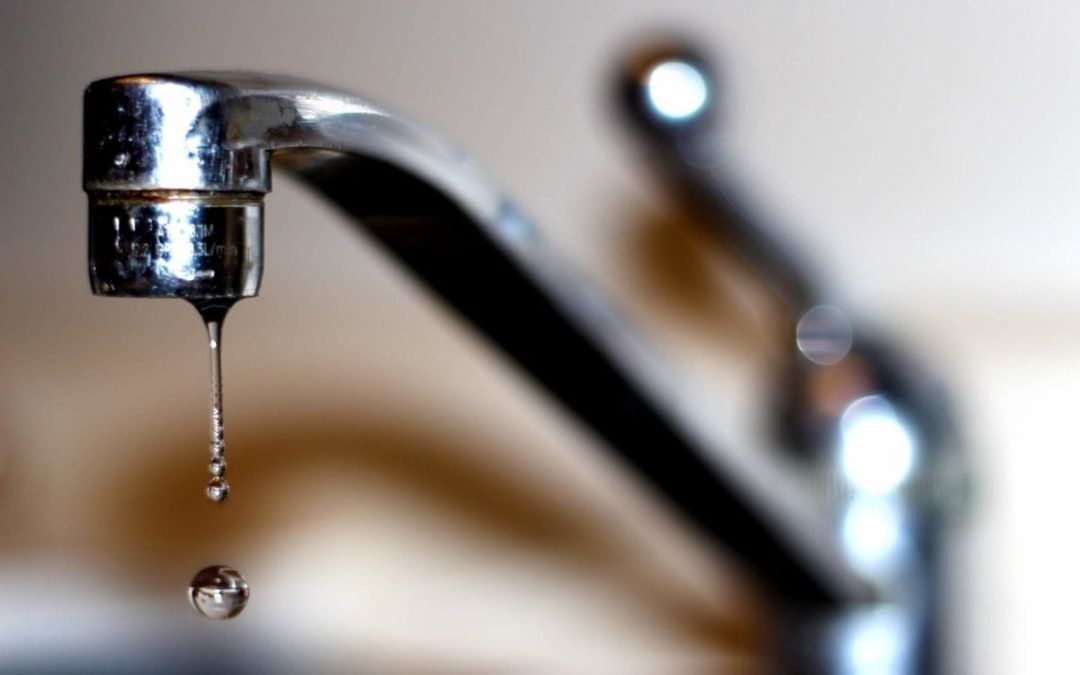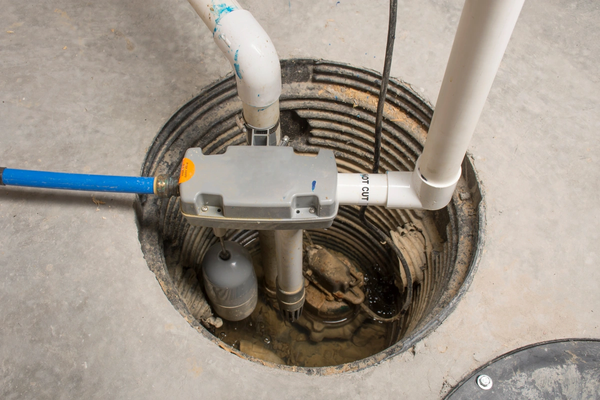Just about every person will have his or her own thinking involving 10 Reasons for Low Water Pressure in Your House.

Low water pressure in your home can be an irritating trouble, influencing every little thing from showering to cleaning dishes. If you're experiencing weak water flow, there are a number of possible reasons and services to discover. In this overview, we'll talk about usual factors for low water stress and sensible steps to address the concern efficiently.
Intro to Low Tide Stress
Low tide stress takes place when the flow of water from your taps, showers, and various other components is weaker than usual. This can make everyday jobs more difficult and less effective. Comprehending the reasons for low tide pressure is important to locating the best option.
Typical Reasons For Low Water Pressure
Pipeline Obstructions
Gradually, pipelines can become blocked with natural resource, sediment, or debris, restricting the circulation of water. This is an usual issue in older homes with galvanized steel pipes.
Corrosion
Deterioration within pipes can lead to leakages and reduced water stress. Rust accumulation can tighten water circulation, especially in aging plumbing systems.
Faulty Stress Regulators
Stress regulatory authorities are accountable for preserving regular water stress in your house. If they malfunction, it can cause low tide stress or irregular circulation throughout your house.
Metropolitan Water Issues
In some cases, the issue lies outside your home. Community water problems, such as main line leakages or upkeep job, can briefly minimize water pressure in your area.
Just How to Detect Low Tide Pressure
Checking Faucets and Fixtures
Beginning by evaluating the water stress at various taps and components throughout your home. If the concern is separated to particular locations, it might show local issues.
Inspecting Pipes
Examine noticeable pipelines for indications of leaks, deterioration, or clogs. Take note of any uncommon noises, such as banging or rattling pipelines, which can indicate problems within the plumbing system.
Consulting with a Plumber
If you're unable to determine the cause of low water pressure, consider employing a professional plumber to conduct an extensive evaluation. They can identify underlying issues and suggest ideal services.
DIY Solutions to Fix Low Water Pressure
Cleansing Aerators and Showerheads
Natural resources can collect in aerators and showerheads, minimizing water circulation. Eliminate and clean these components regularly to boost water stress.
Flushing Water Heater
Sediment build-up in the hot water heater can restrict circulation and lower efficiency. Purging the storage tank periodically helps remove debris and preserve ideal efficiency.
Inspecting Pressure Regulator
Guarantee that the stress regulator is working correctly. Changing or replacing the regulator can help recover correct water pressure throughout your home.
Clearing Up Clogs in Pipeline
For minor blockages, attempt utilizing a plumbing snake or chemical drain cleaner to clear blockages in pipes. Be cautious when using chemicals and follow safety and security guidelines.
When to Call a Professional Plumber
If do it yourself initiatives stop working to fix the concern or if you think considerable plumbing problems, it's ideal to look for help from an accredited plumber. They have the know-how and devices to address intricate concerns securely and successfully.
Safety Nets to Preserve Water Pressure
Normal Maintenance
Schedule routine upkeep for your plumbing system to stop problems such as deterioration, leakages, and obstructions. Dealing with small troubles early can aid stay clear of even more significant repair work in the future.
Installing a Stress Booster
Take into consideration mounting a pressure booster pump to improve water stress in locations with regularly reduced circulation. This can be particularly advantageous for multi-story homes or residential properties with high-demand fixtures.
Tracking Water Usage
Bear in mind water use habits and stay clear of ill-using the plumbing system. Simple modifications, such as staggering showers and washing tons, can aid keep adequate water stress.
Verdict
Handling low water pressure can be irritating, but determining the underlying reasons and carrying out suitable solutions can restore optimal flow throughout your home. Whether it's cleaning aerators, evaluating pipes, or talking to a plumber, taking aggressive steps can make sure a constant supply of water for your day-to-day needs.
HOW TO FIX LOW WATER PRESSURE IN YOUR HOUSE (EXPERT GUIDE)
The morning shower lacking any real pressure? Bathtub taking hours to fill? Or maybe you’re dissatisfied with the inadequate performance from your combi boiler?
Then you, like millions of others across the UK, might be experiencing low water pressure.
Fortunately, the good news is that you don’t have to continue living this way. The cause of low water pressure in the home is often quite simple, and you may not even require a plumber to fix the problem.
What causes low water pressure in the house?
If you are experiencing issues with water pressure throughout your home, then you may have one of the problems outlined below.
Most of these problems can be fixed quite easily, but for others, you may need to contact a plumber.
Obstructed Shutoff Valve
If you’ve just bought a new home or recently had building work conducted on your property, there is a chance that your water valves were not fully opened.
If the water valve is partially closed, then you may be restricting the amount of water entering your home. To fix this, simply ensure the valve is fully open.
If the valve appears fully open but you are still encountering reduced water pressure, then the valve may be broken. If this is the case, do not under any circumstances try to fix it without proper training.
Often found under your kitchen sink, a water valve will usually look like a bright yellow handle.
Again, if you believe the water valve is broken, contact a plumber immediately.
Leaks in Your Water Pipes
Leaks are the worst-case scenario when it comes to low water pressure.
If the water pipes are damaged, then this will cause low water pressure, as not all the water will make it to your taps.
After you’ve checked to see if the valve is fully open, you can conduct a leak check of your home. Now, this may seem scary, but it is actually quite simple.
Clogged Water Pipes
Clogged water pipes are one of the most common causes of low water pressure.
These clogs usually build-up when your home is supplied water via iron pipes. Iron is particularly vulnerable to rusting which can then break off and cause an obstruction within your system. You also face the problem of things like dirt, gravel or sand entering creating mineral deposits which further block water flowing from the mains water supply.
Unfortunately, if you suspect that clogged pipes may be restricting your water supply, then you will need to contact a plumber.
In this situation, you will either need to have your pipes removed and cleaned or in more severe cases, you could require a new set of water pipes.
Designer Taps
Designer taps look fantastic, but are they built to be efficient in your plumbing system? Modern taps are built for modern homes and they often have lower flow rates that are specifically designed for use within high-pressure systems.
Install a Water Pressure Booster Pump
If the issue is simply that the mains water pressure supply is too low, the simplest fix is to invest in a booster pump. Found in homes of all shapes and sizes, booster pumps are a relatively cheap option to add extra pressure to your home.
Designed to increase water pressure by passing water into the pump from your mains supply and then ejecting it into your home water system at a higher pressure, a booster pump is a truly simple and effective solution to increasing water pressure.
https://www.anchorpumps.com/blog/the-plumbers-guide-to-fixing-low-water-pressure/

HOW TO FIX LOW WATER PRESSURE IN YOUR HOUSE (EXPERT GUIDE)
The morning shower lacking any real pressure? Bathtub taking hours to fill? Or maybe you’re dissatisfied with the inadequate performance from your combi boiler?
Then you, like millions of others across the UK, might be experiencing low water pressure.
Fortunately, the good news is that you don’t have to continue living this way. The cause of low water pressure in the home is often quite simple, and you may not even require a plumber to fix the problem.
What causes low water pressure in the house?
If you are experiencing issues with water pressure throughout your home, then you may have one of the problems outlined below.
Most of these problems can be fixed quite easily, but for others, you may need to contact a plumber.
Obstructed Shutoff Valve
If you’ve just bought a new home or recently had building work conducted on your property, there is a chance that your water valves were not fully opened.
If the water valve is partially closed, then you may be restricting the amount of water entering your home. To fix this, simply ensure the valve is fully open.
If the valve appears fully open but you are still encountering reduced water pressure, then the valve may be broken. If this is the case, do not under any circumstances try to fix it without proper training.
Often found under your kitchen sink, a water valve will usually look like a bright yellow handle.
Again, if you believe the water valve is broken, contact a plumber immediately.
Leaks in Your Water Pipes
Leaks are the worst-case scenario when it comes to low water pressure.
If the water pipes are damaged, then this will cause low water pressure, as not all the water will make it to your taps.
After you’ve checked to see if the valve is fully open, you can conduct a leak check of your home. Now, this may seem scary, but it is actually quite simple.
Clogged Water Pipes
Clogged water pipes are one of the most common causes of low water pressure.
These clogs usually build-up when your home is supplied water via iron pipes. Iron is particularly vulnerable to rusting which can then break off and cause an obstruction within your system. You also face the problem of things like dirt, gravel or sand entering creating mineral deposits which further block water flowing from the mains water supply.
Unfortunately, if you suspect that clogged pipes may be restricting your water supply, then you will need to contact a plumber.
In this situation, you will either need to have your pipes removed and cleaned or in more severe cases, you could require a new set of water pipes.
Designer Taps
Designer taps look fantastic, but are they built to be efficient in your plumbing system? Modern taps are built for modern homes and they often have lower flow rates that are specifically designed for use within high-pressure systems.
Install a Water Pressure Booster Pump
If the issue is simply that the mains water pressure supply is too low, the simplest fix is to invest in a booster pump. Found in homes of all shapes and sizes, booster pumps are a relatively cheap option to add extra pressure to your home.
Designed to increase water pressure by passing water into the pump from your mains supply and then ejecting it into your home water system at a higher pressure, a booster pump is a truly simple and effective solution to increasing water pressure.
https://www.anchorpumps.com/blog/the-plumbers-guide-to-fixing-low-water-pressure/
As an enthusiastic person who reads about 9 Reasons for Low Water Pressure in Your House, I was thinking sharing that excerpt was a good thing. Loved our piece? Please quickly share it. Help someone else check it out. Many thanks for going through it.
Call Today